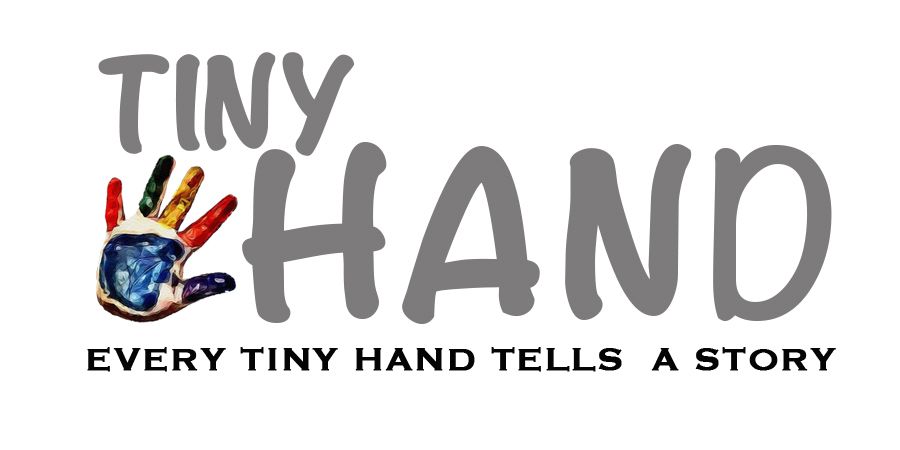Toys of Syrian Children:
Stolen Moments of Joy in Gloomy Times

To be a Syrian boy or girl, of no more than ten years old, means that you were undoubtedly born in time of war, and have not the chance to enjoy many of childhood’s joys and games.
It also means that part of such a kid’s dreams would be to go to amusement parks and enjoy their bright colorful flashing lights. For them, playing a football match with schoolmates in the neighborhood’s green grass playground might be a kind of luxury!
In fact, just having a well air-filled football or a beautiful doll is sheer luxury in the camps where nearly two million displaced children live. Of course, the rest of the children, who do not have any kind of toys, will inevitably see such a child “lucky”, and will undoubtedly try to get closer to him to share play with them.
In the displaced people camps’ small tents, that may lack the basics, children's toys remain a luxury not accessible to all.
It is true that those Syrian children were born in time of war, bombardment and devastation, but their human and childish instinct makes them attached to the toys, albeit few, they usually got from international humanitarian organizations.
Riding a Bicycle Is My Dream Game!


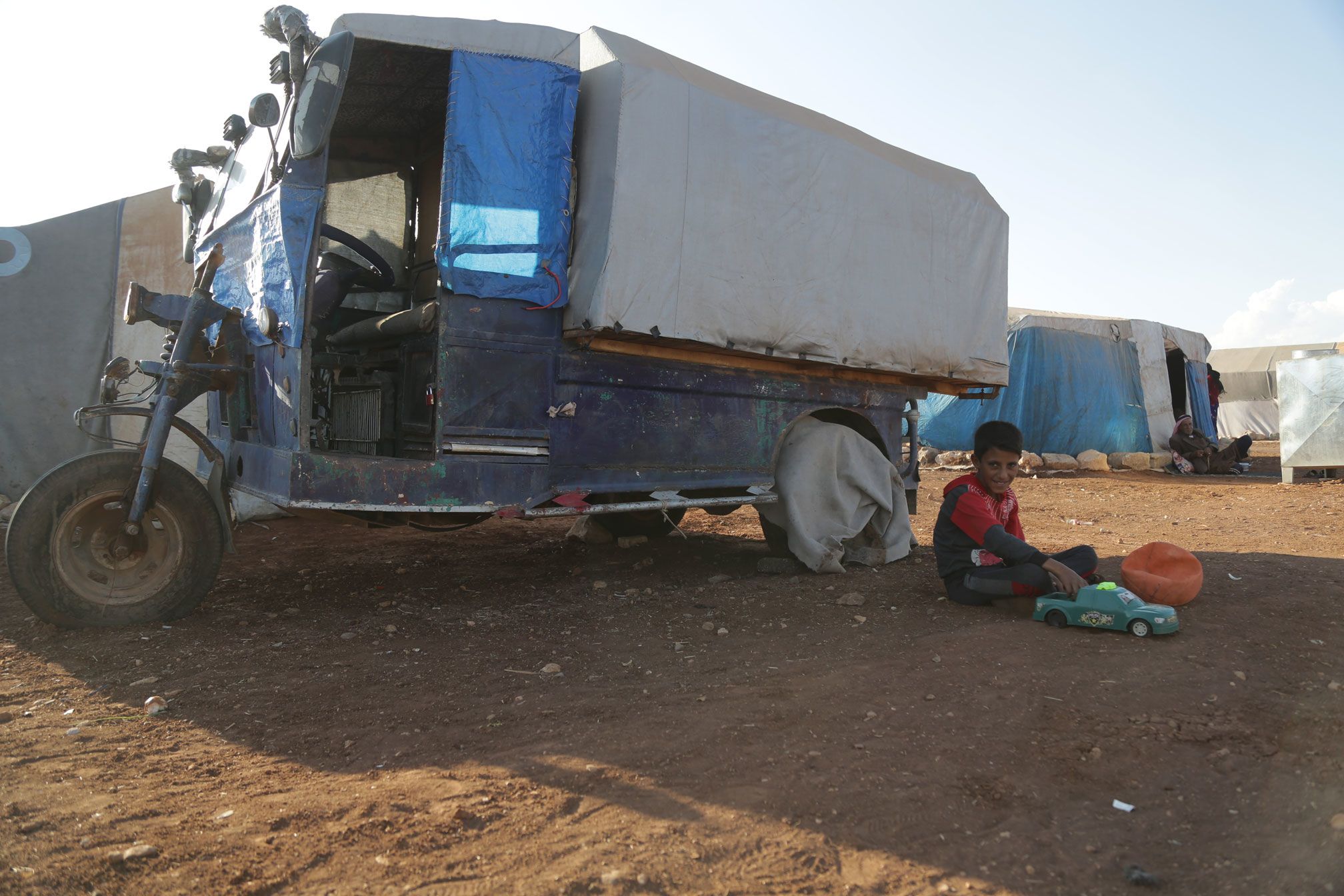
Ali
Ali
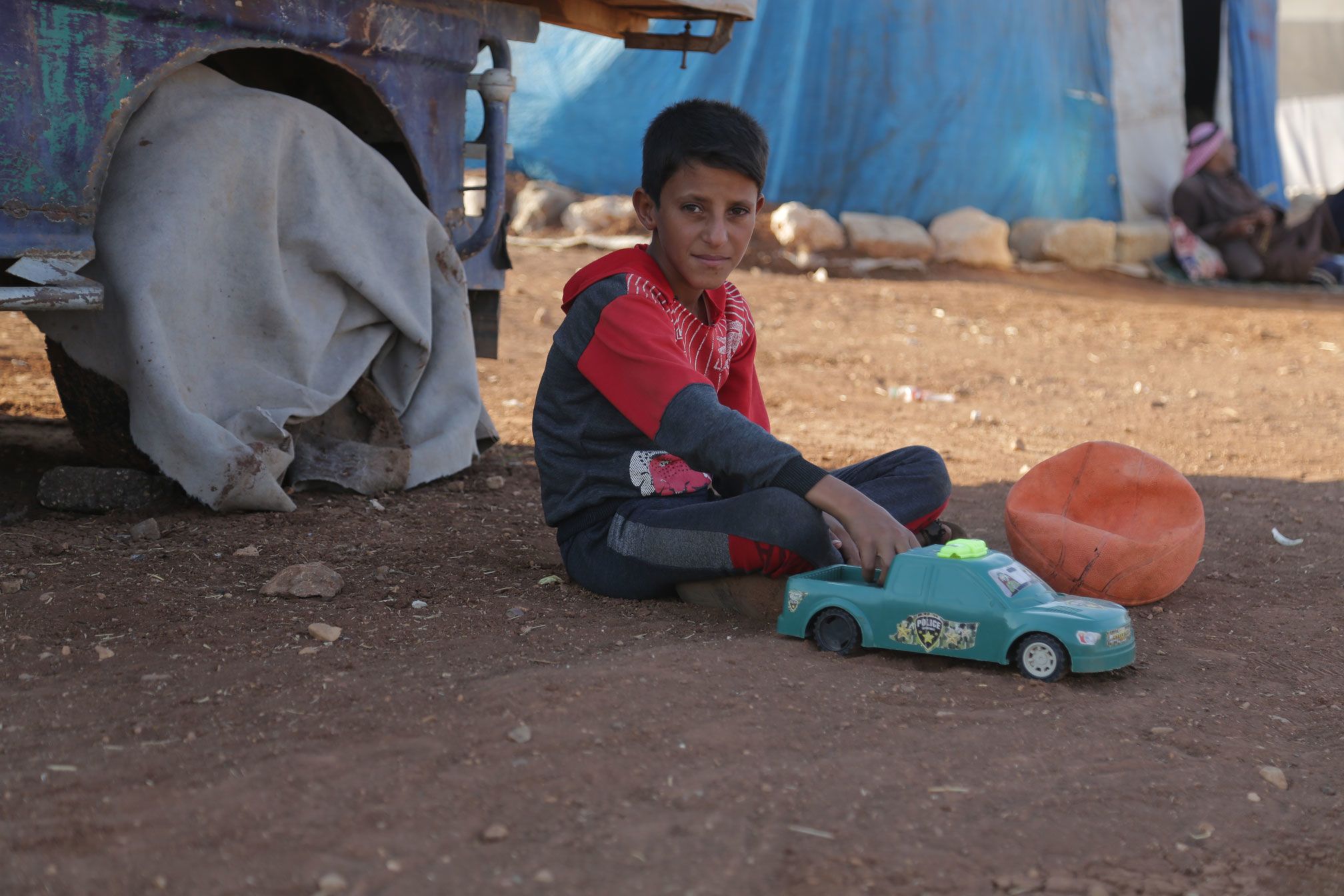
Ali
Ali
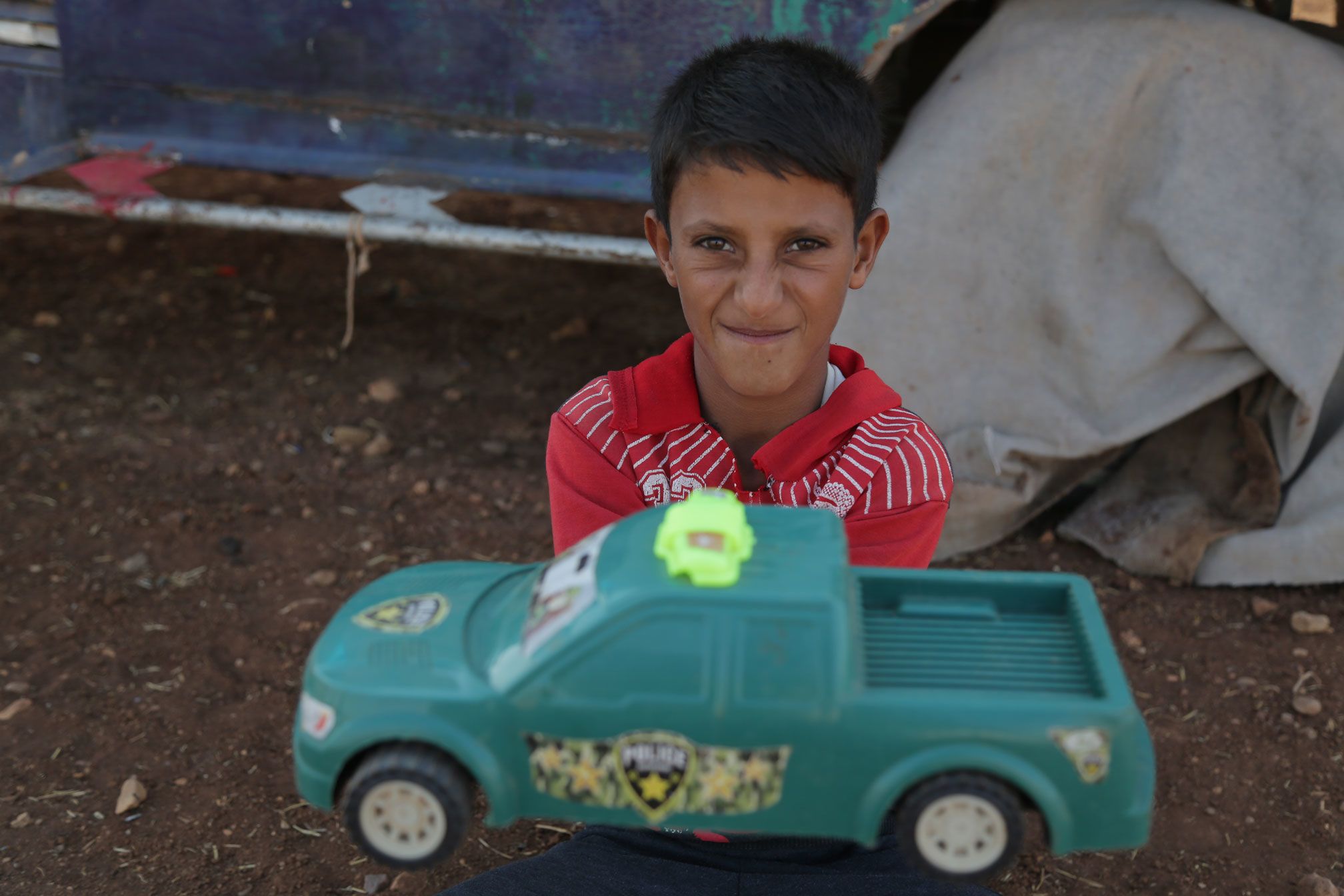
Ali
Ali
“I wish I had a Bicycle, but I don't have enough money to buy one,” said Ali with a wide yet shy smile, “Riding one is my favorite game.”
Distracted by nearby children, Ali turns every now and then to them. However, his eyes always return to the two toys in front of him, a toy car and a ball. He did not buy them. They were gifted to him by those he called “good people”.
Although the ball is deflated and old, Ali still wants to roll and hit it hard. He does not hesitate to lie on the ground and move his toy car back and forth.
While in the camp, 10-year-old Ali eagerly waits for his dream of having a bicycle to come true. He also aspires to become rich in the future and wishes to help orphans and the poor. “And why not buying beautiful toys for children!” he wondered.
One Toy Car Only, Is It Enough?


In 2020, the number of children showing symptoms of psychological and social distress doubled, says an official UNICEF report, explaining that continuous exposure to violence, intense fear and trauma has a significant impact on the mental health of children, with both short and long-term consequences.
Perhaps playing will repair war’s damages and repercussions on the psyche of Syrian children, increase their self-confidence and self-esteem, improve their physical and mental health, develop new skills, help them learn to share things, and enhance their imagination, creativity and independence.
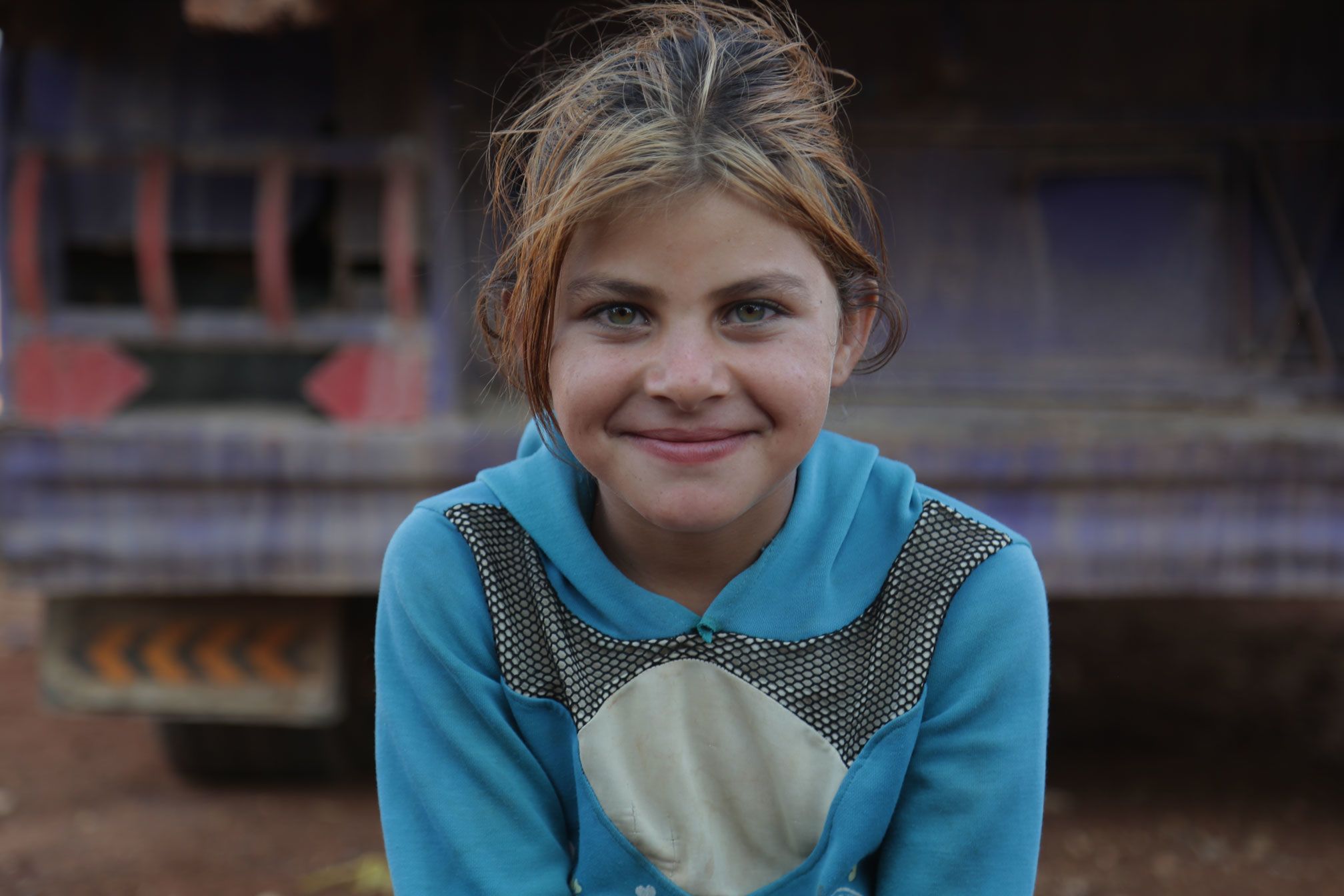
With her crystal green eyes, as wide as the world, dreaming of riding a horse, and having fun with her best friends Halima and Betoul around the camp tents, Nisreen has but a pink and blue toy car.
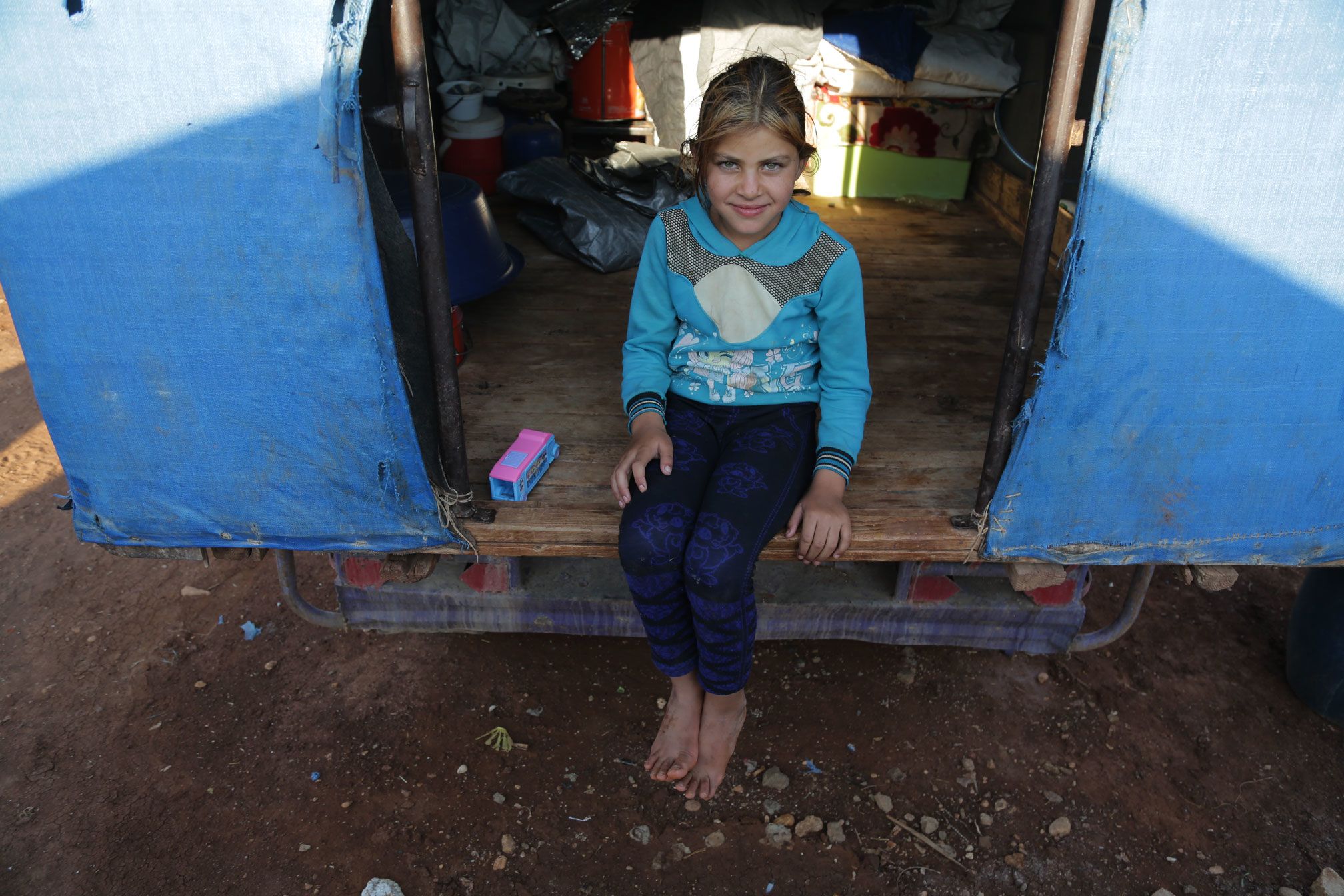
“I love it because I don't have anything else,” the ten-year old girl told Tiny Hand, “It is true that I had many toys before, but they were all lost.”
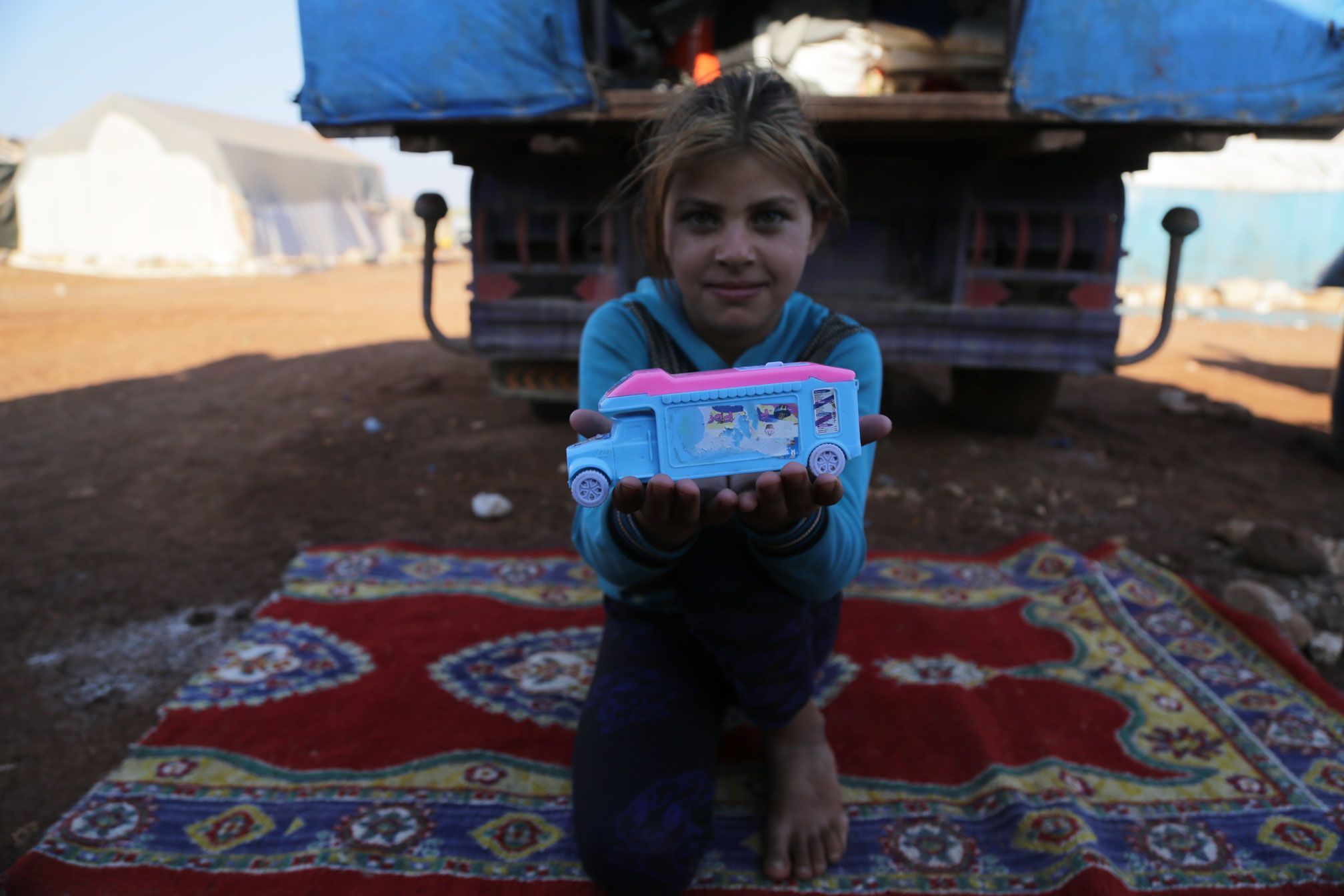
With great joy, beautiful Nisreen moves her toy car on the dusty tent floor and plays with it cheerfully, who knows? Perhaps she imagines herself driving her own real car with joy and ecstasy.
Not Everyone is Lucky Enough to Have a Toy!


In the Azraq Refugee camp, near Idleb, to which he and his family were displaced two years ago, Absi was not fortunate enough to have a toy, not any one.
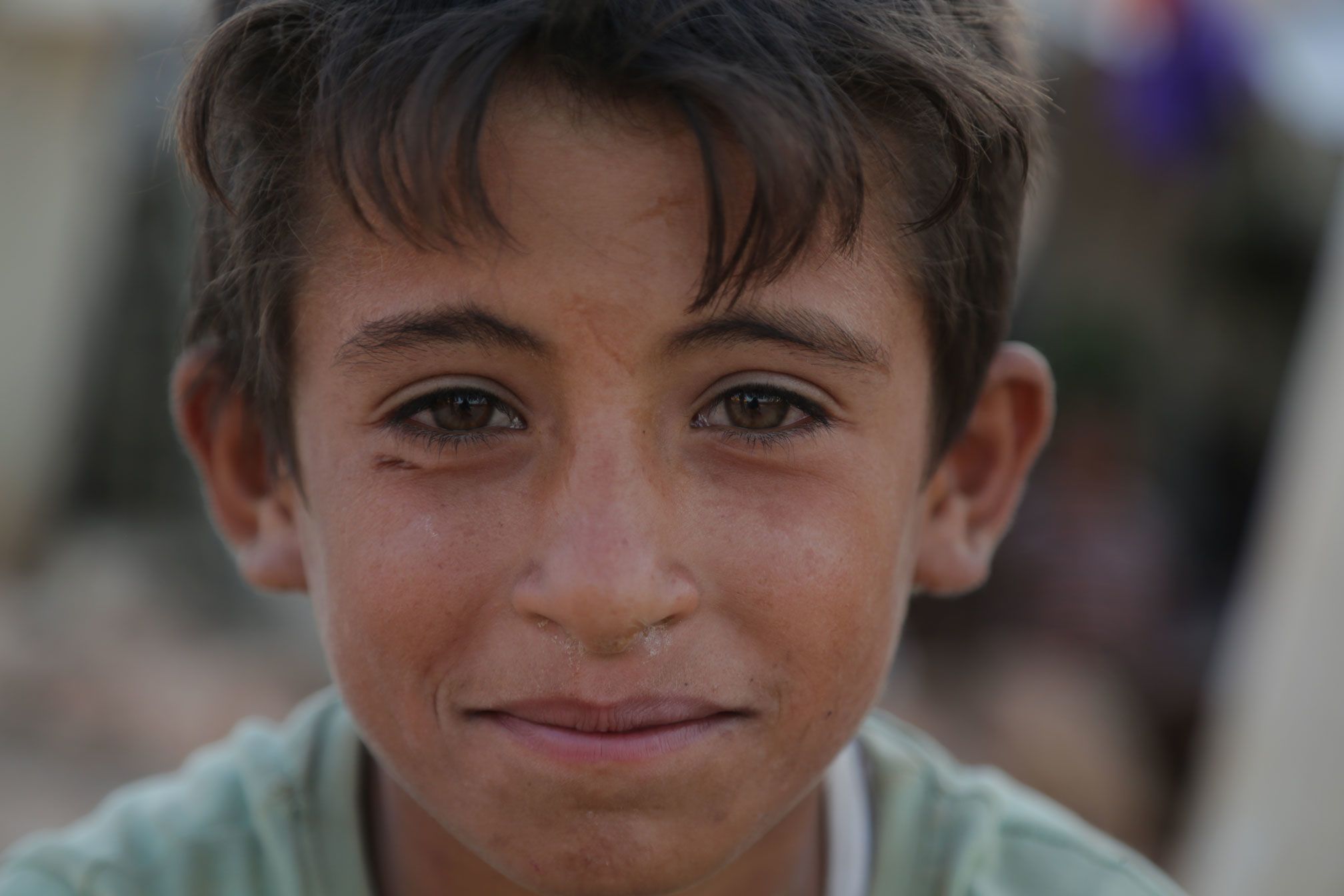
“I don't have any toy,” said the ten-year old boy with sad eyes, sitting on a rock in front of a tent, “I wish to have many toys, toy cars, pistols and a ball....”
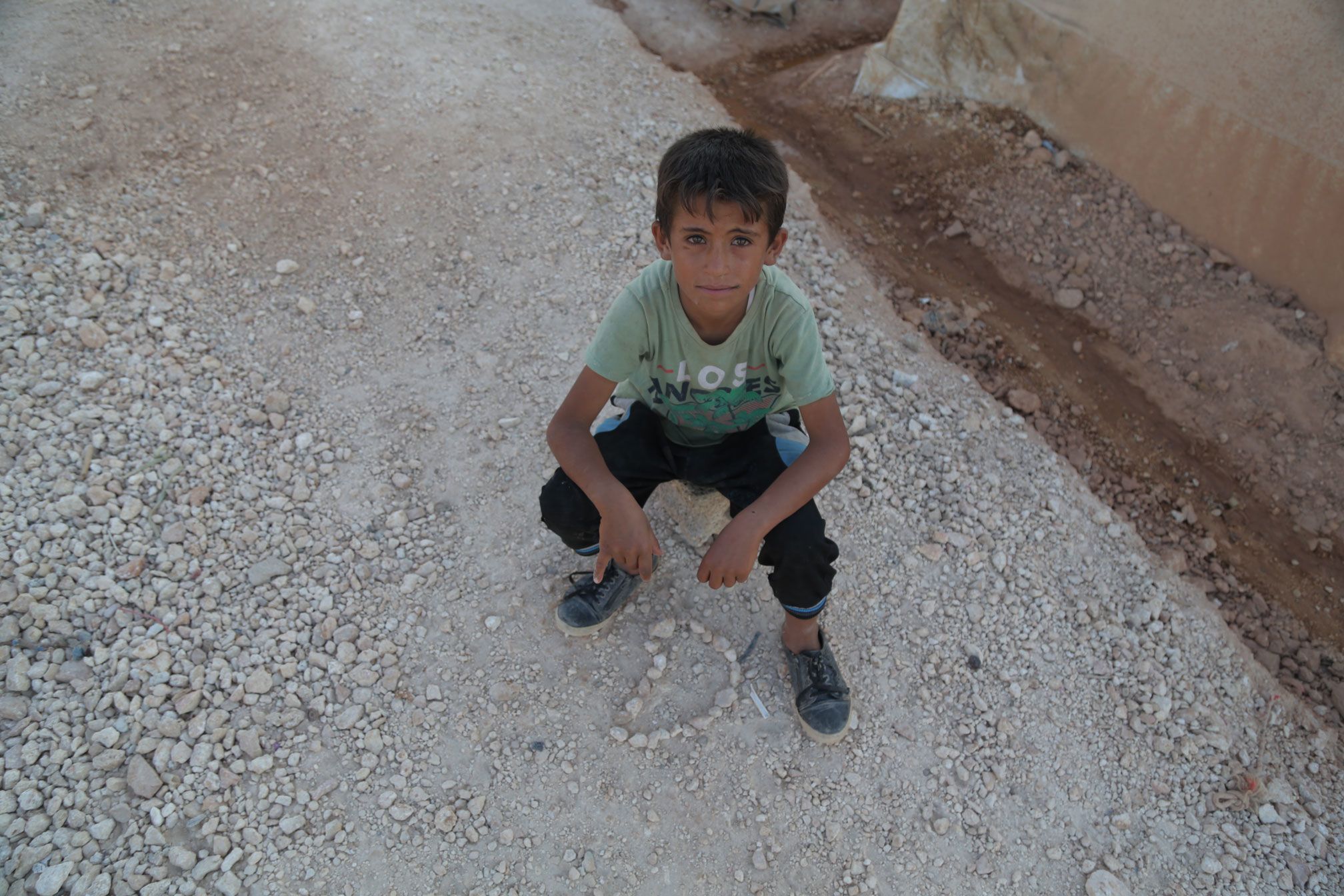
Absi replaces the toys he wishes to own by accompanying his friends, namely Abdel-Halim, Abbas and Mustafa.
He has fun playing in the camp yard and joins his friends playing soccer matches or building mud houses, or at worst, stacking small white stones to form a geometric model.
My Blonde Doll: My Toy and Beloved Friend


Playing with her dear doll, brushing its long blonde hair and adjusting its pink dress; that is how Zehiya spends her time with her favorite doll carrying it wherever she goes in the Azraq Refugee Camp.
“The aid organization gave me this doll. It is my favorite," said the 7-year-old girl, boasting, as if she owns a treasure, that she also has a "teddy bear" and a toy car gift from her father.
With a dream of becoming a teacher someday, this little girl spends time playing alone or with her younger brother, even though she sees him a troublemaker. She spoke to us in intervals before she returns to pet and take care of her doll.
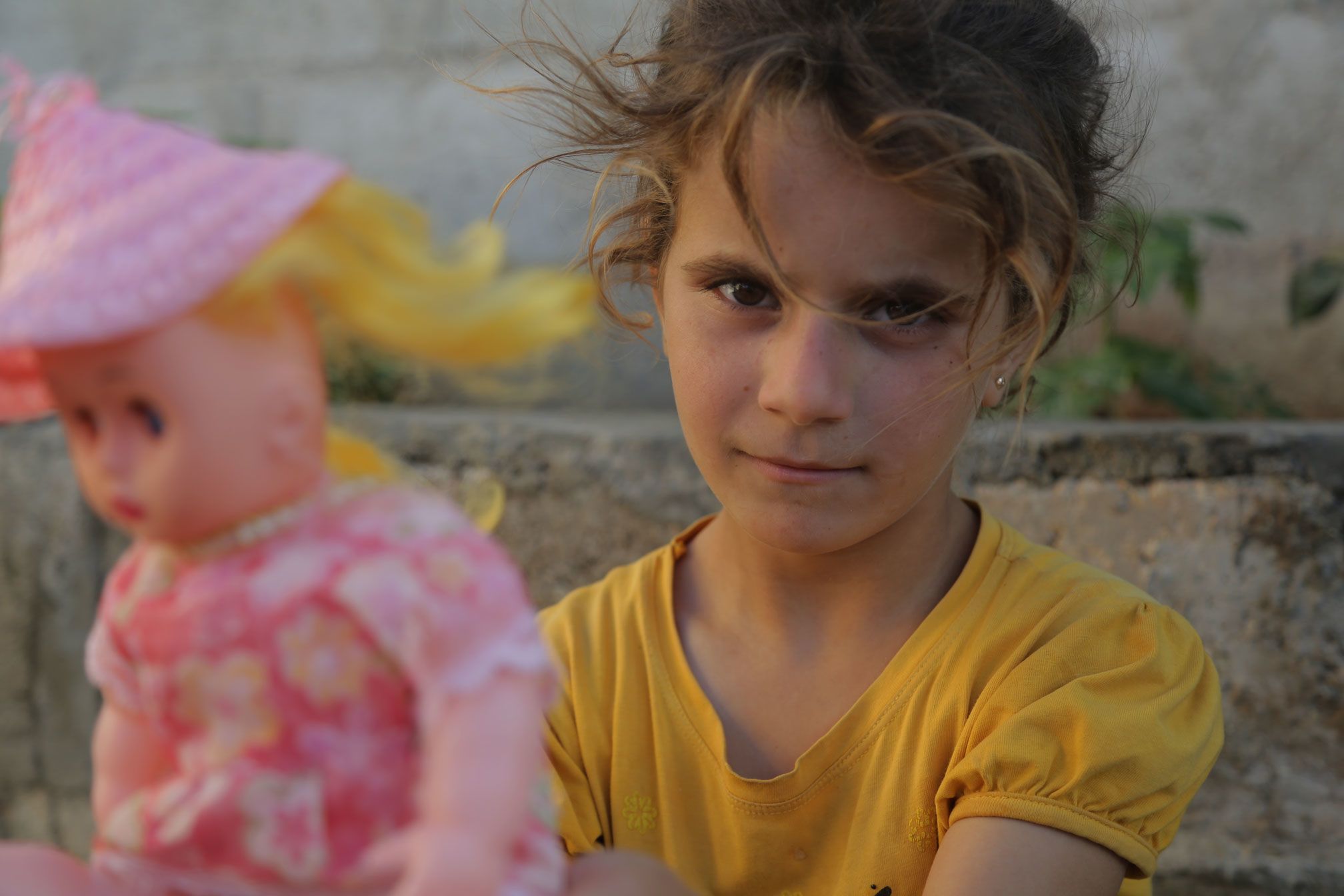
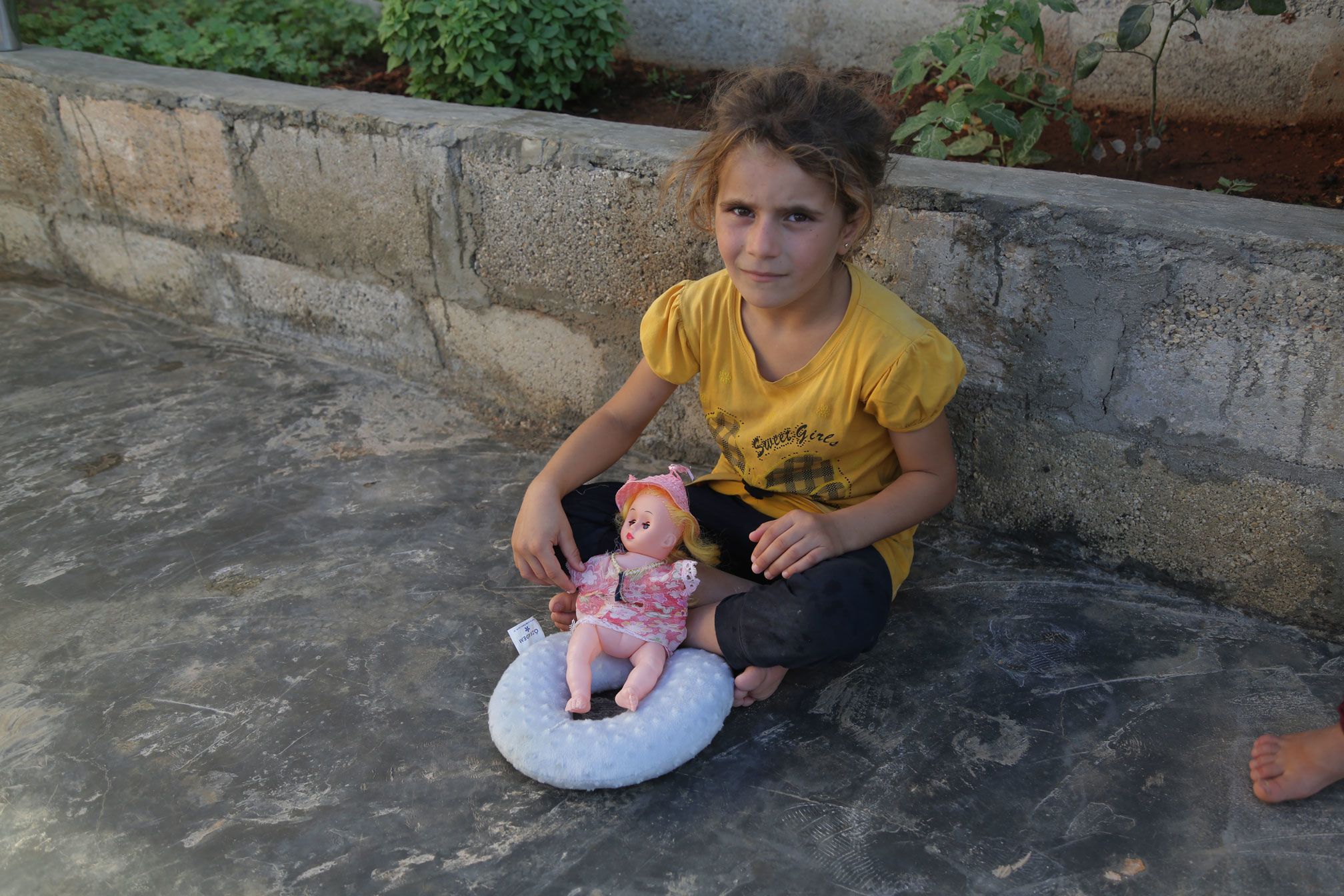
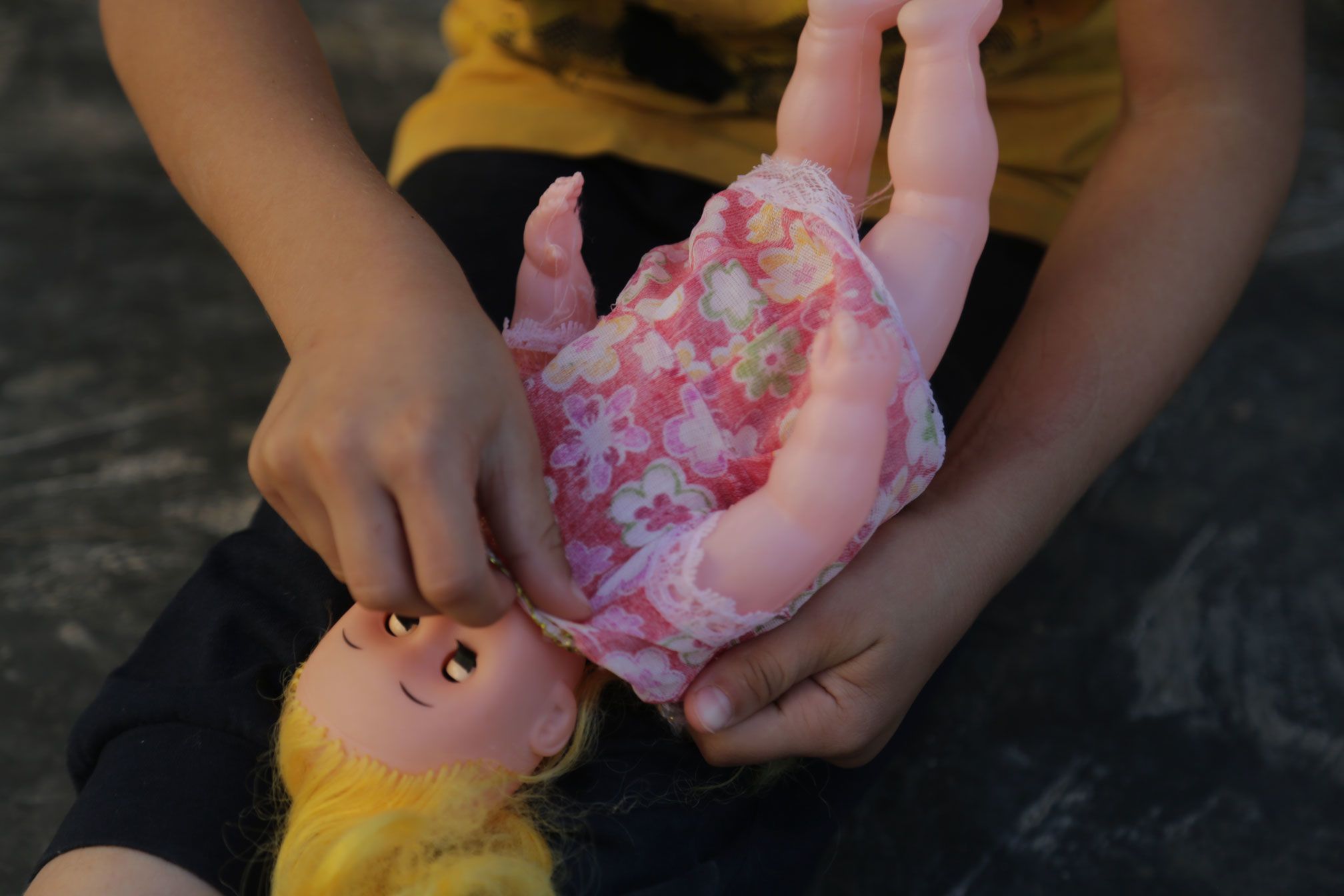
Having More Than a Toy Is an Unimaginable Luxury

With a look of ecstasy on her face, Bashira looks at her treasure she carefully placed in front of her.
In front of her tent, the 11-year-old girl quietly stares at her toys. In the eyes of the rest of the children, she is lucky to have two beautiful dolls in bright dresses; one of which has a hat and sits in a stroller.
The girl also has an educational computer with games to pronounce Arabic and English letters and recite religious supplications, but we do not know for sure if the child can buy batteries to run it.
Bashira’s various toys include a bicycle, small balls, a crown, and other tiny toys.
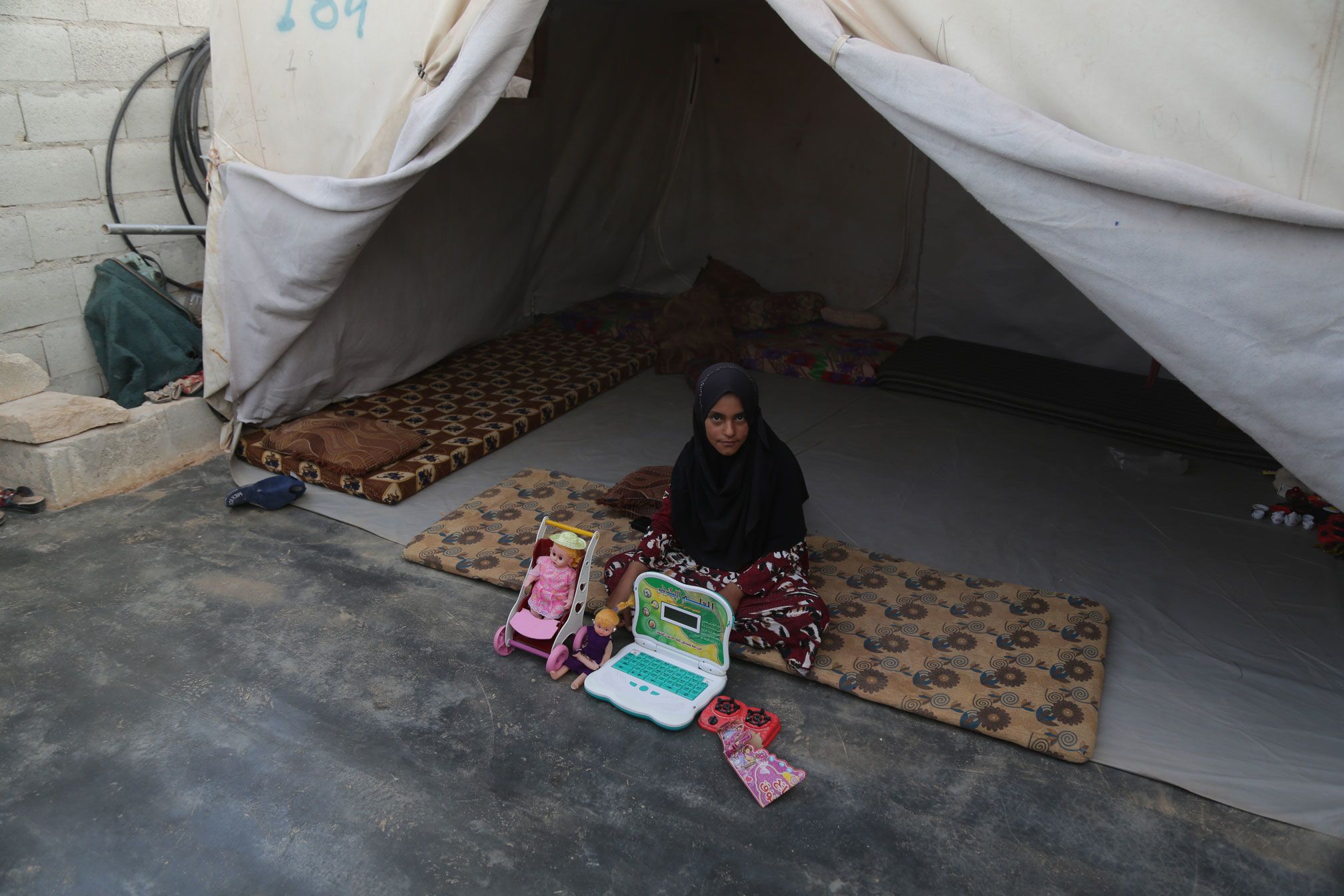
Bashira bought these toys back in the village, and kept them when she and her family were forced to leave. “My most beloved ones will always be those two dolls because they are blonde and beautiful,” she told Tiny Hand.
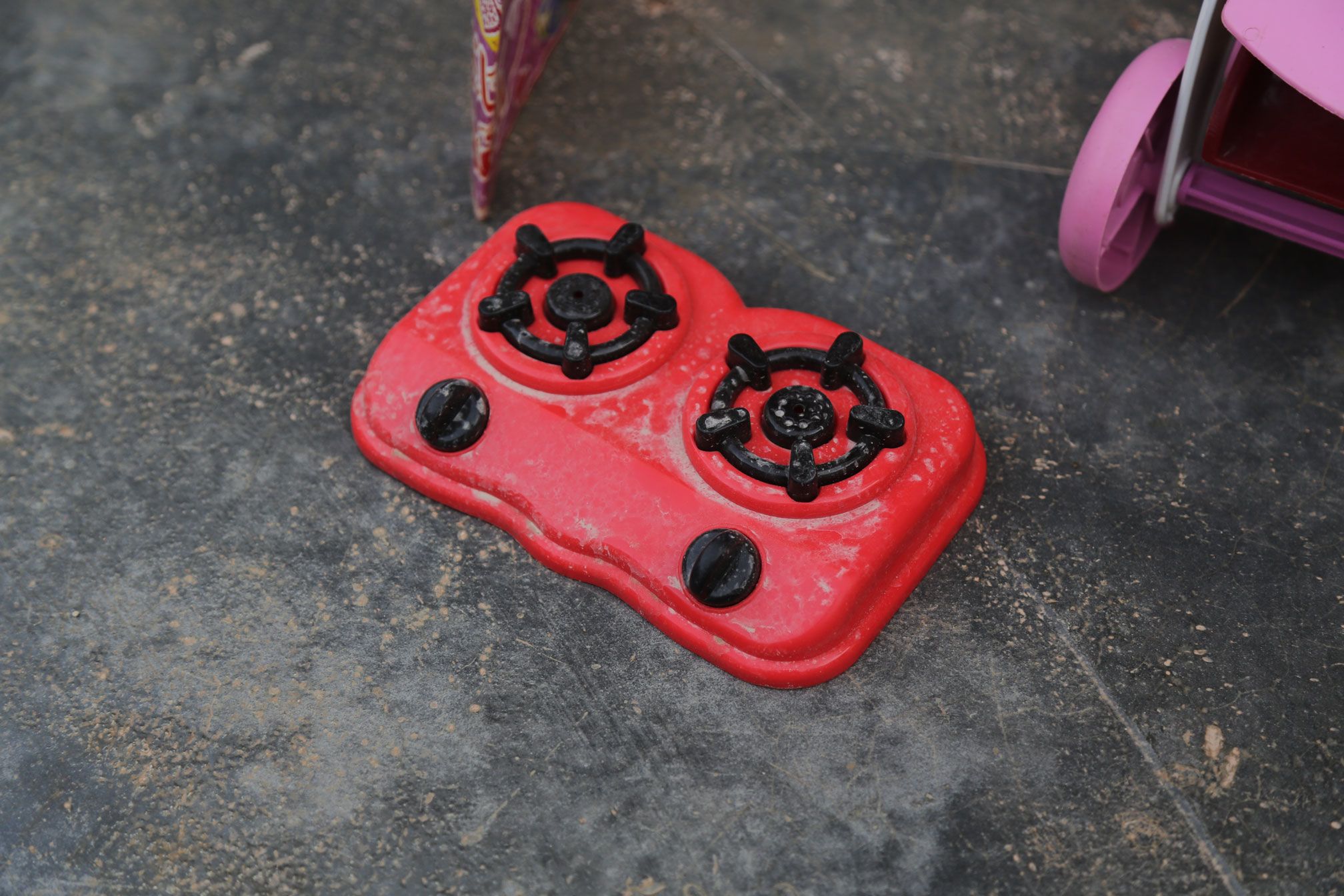
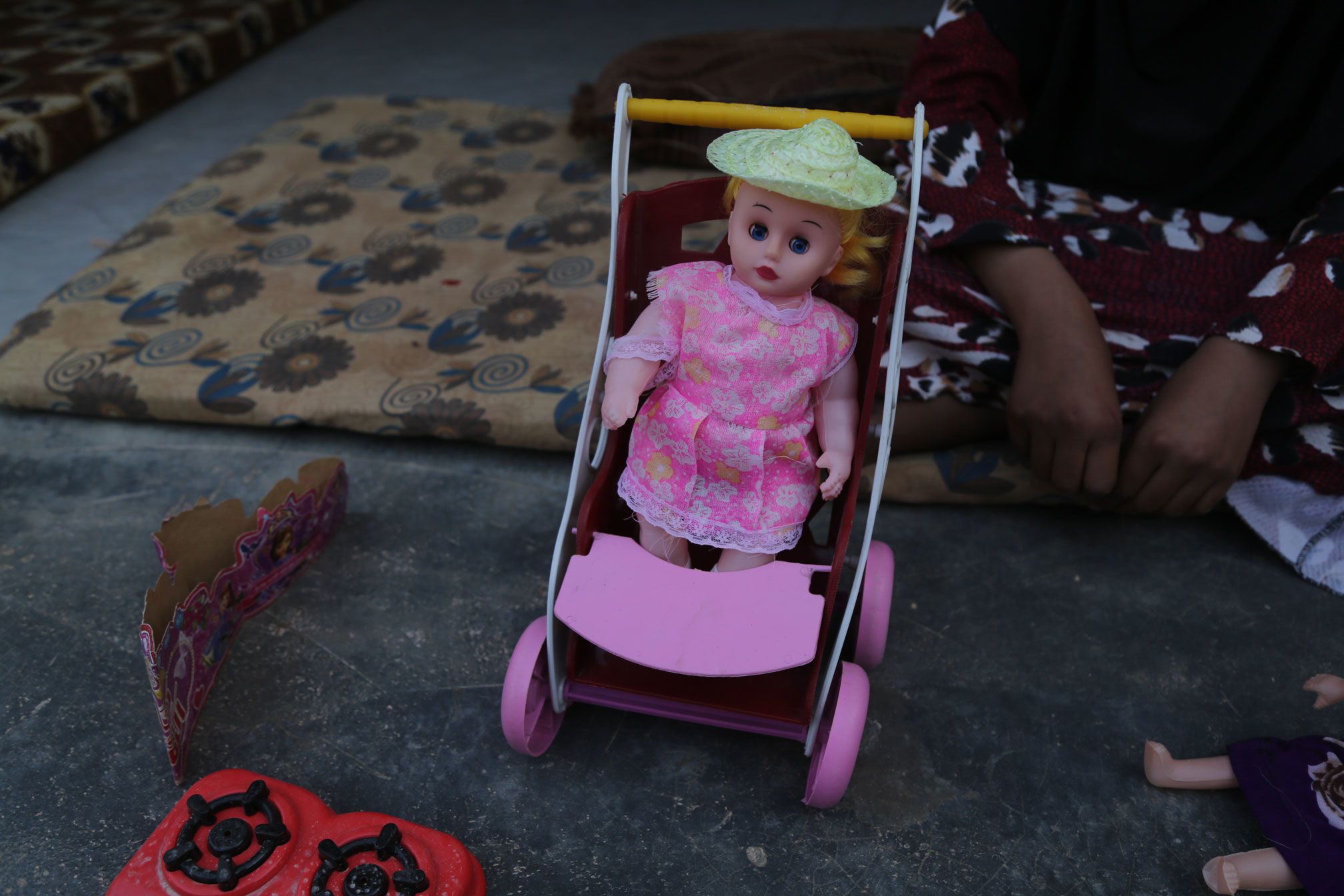
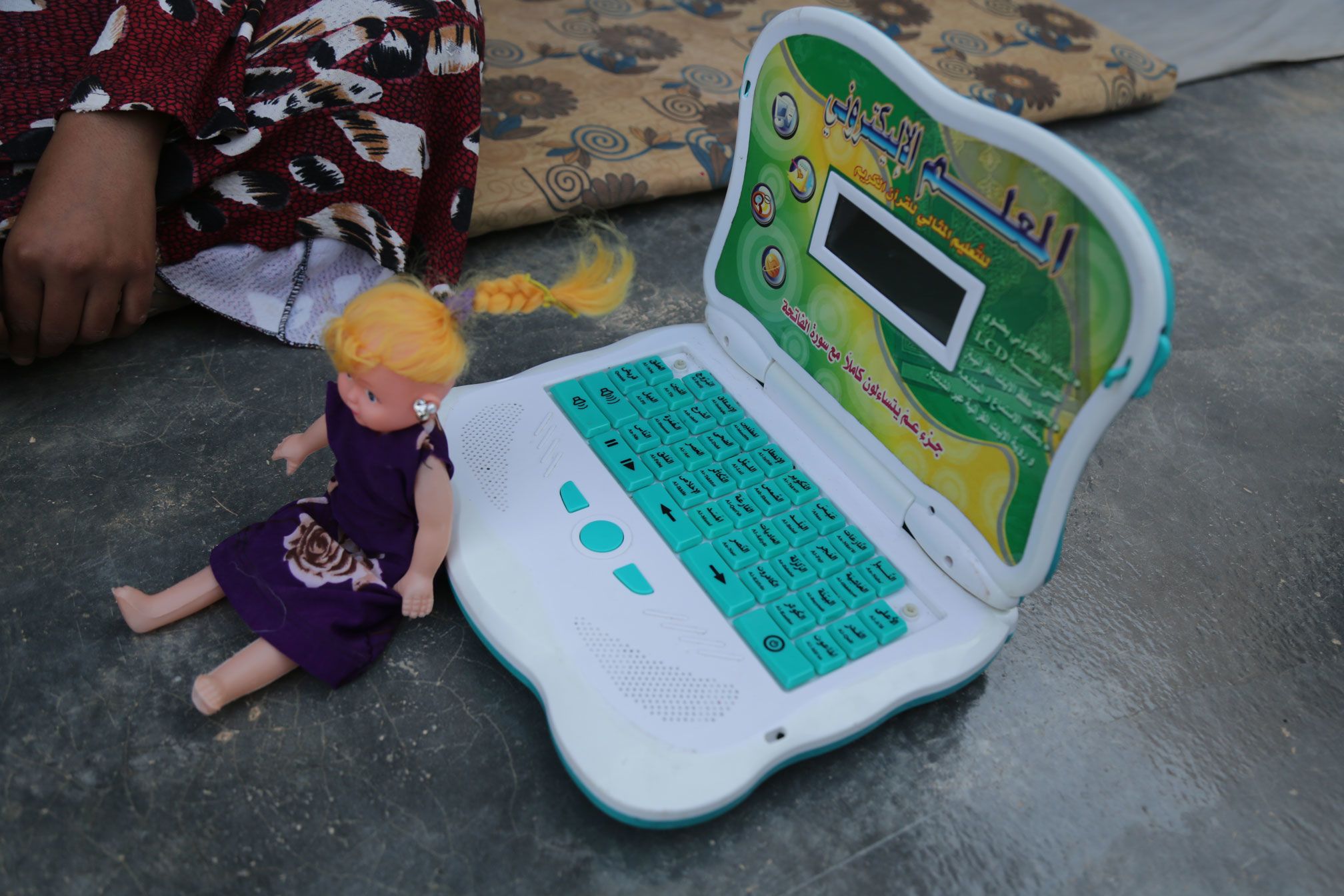
My Sister's Toys Are Mine Too!


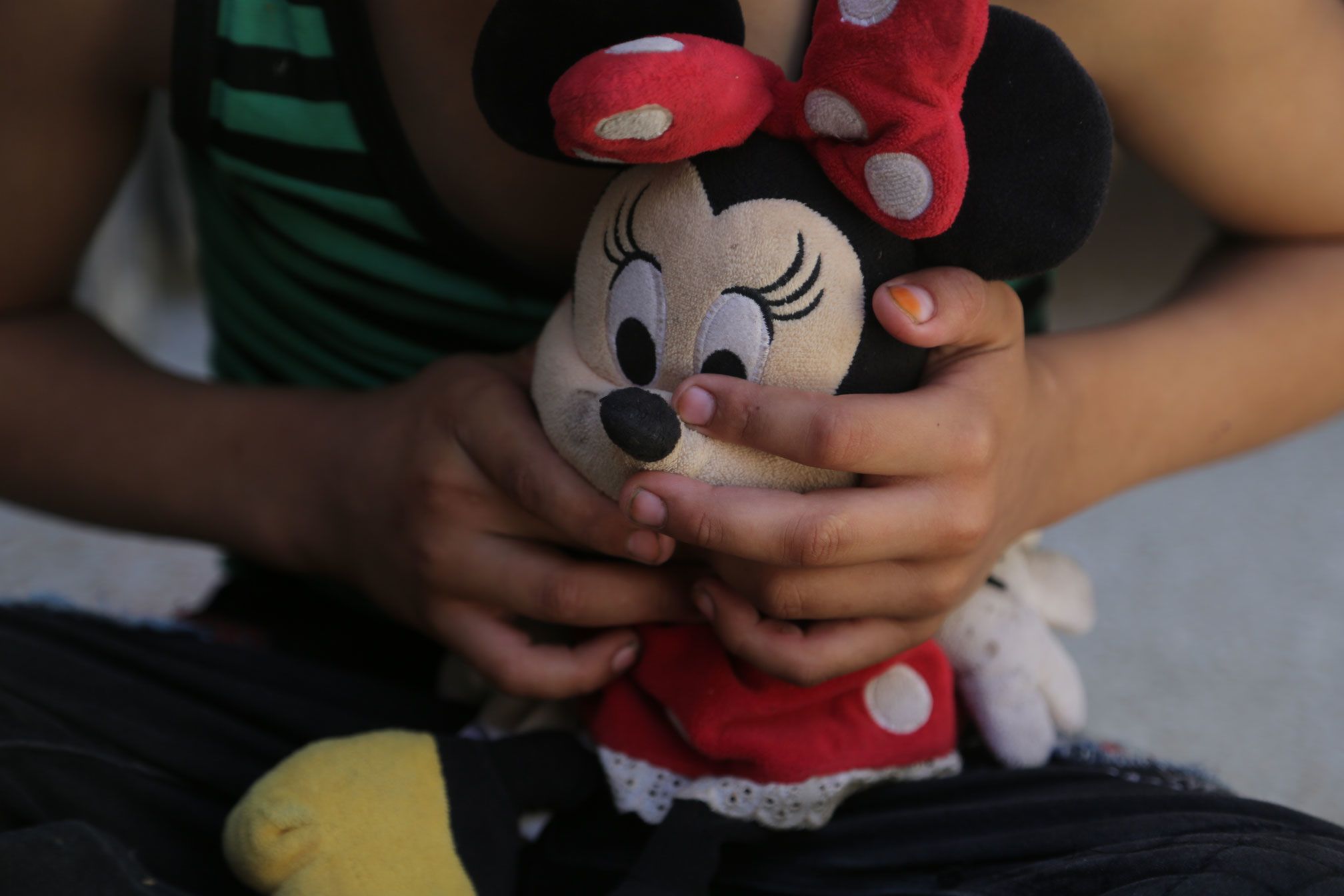
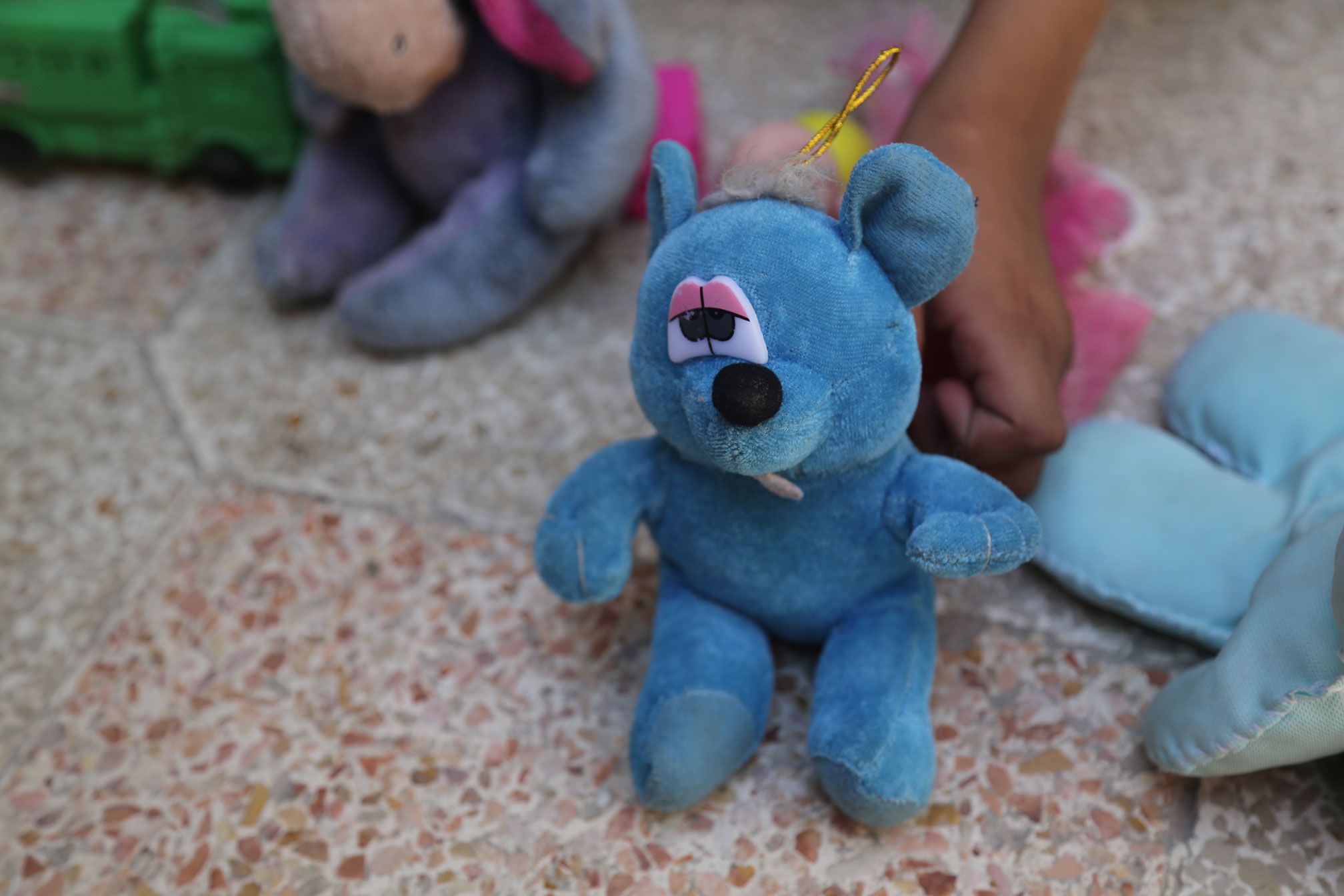
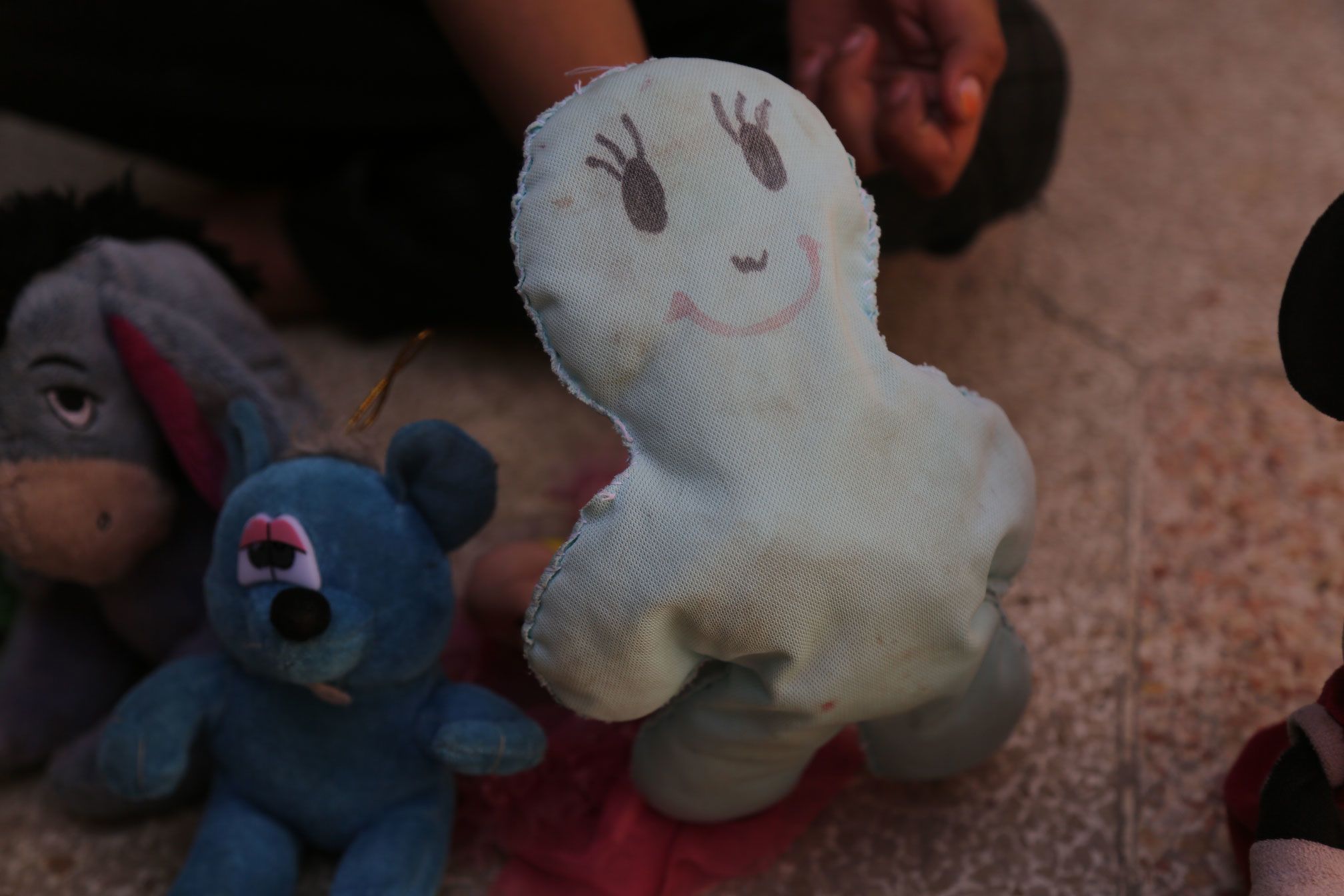
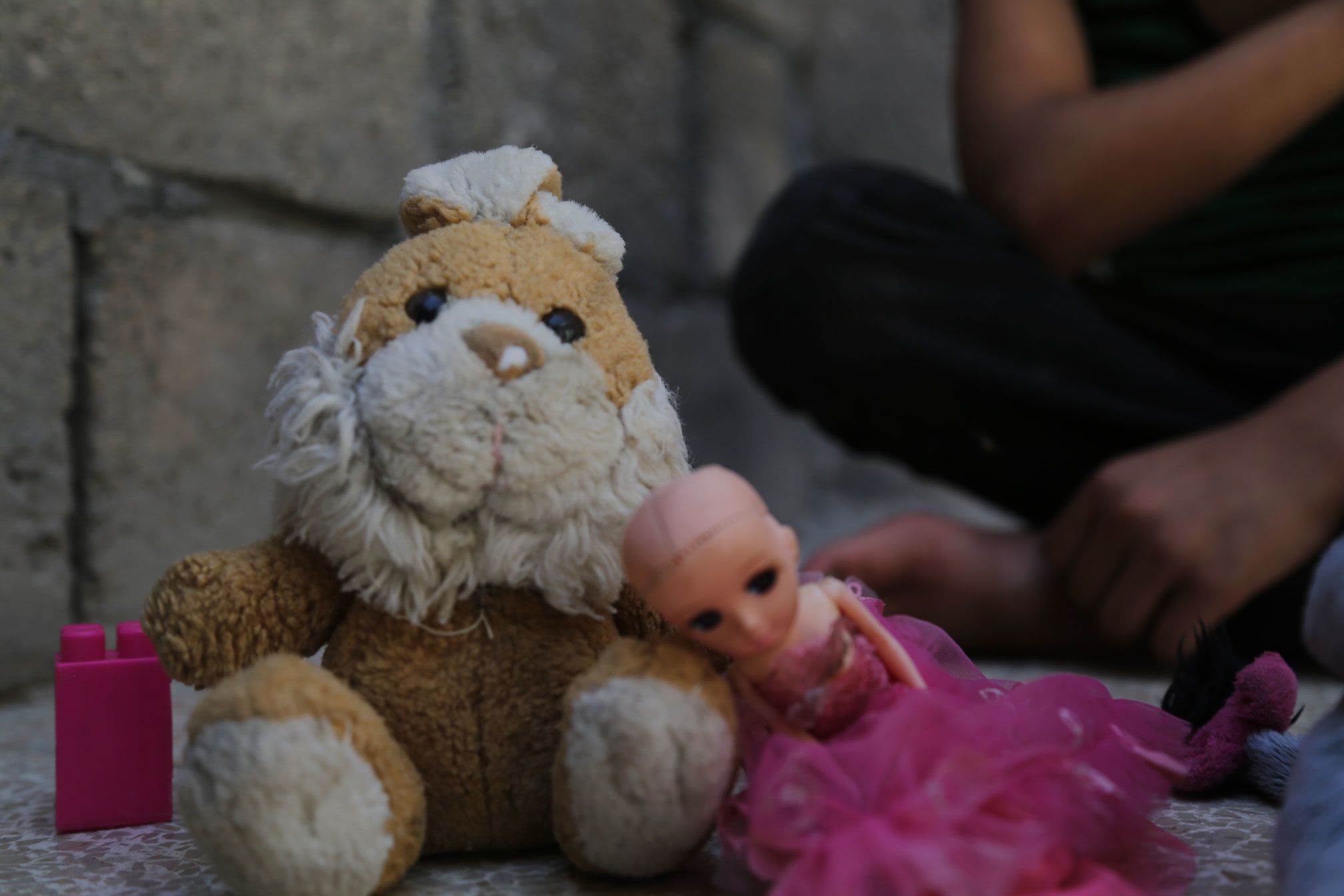
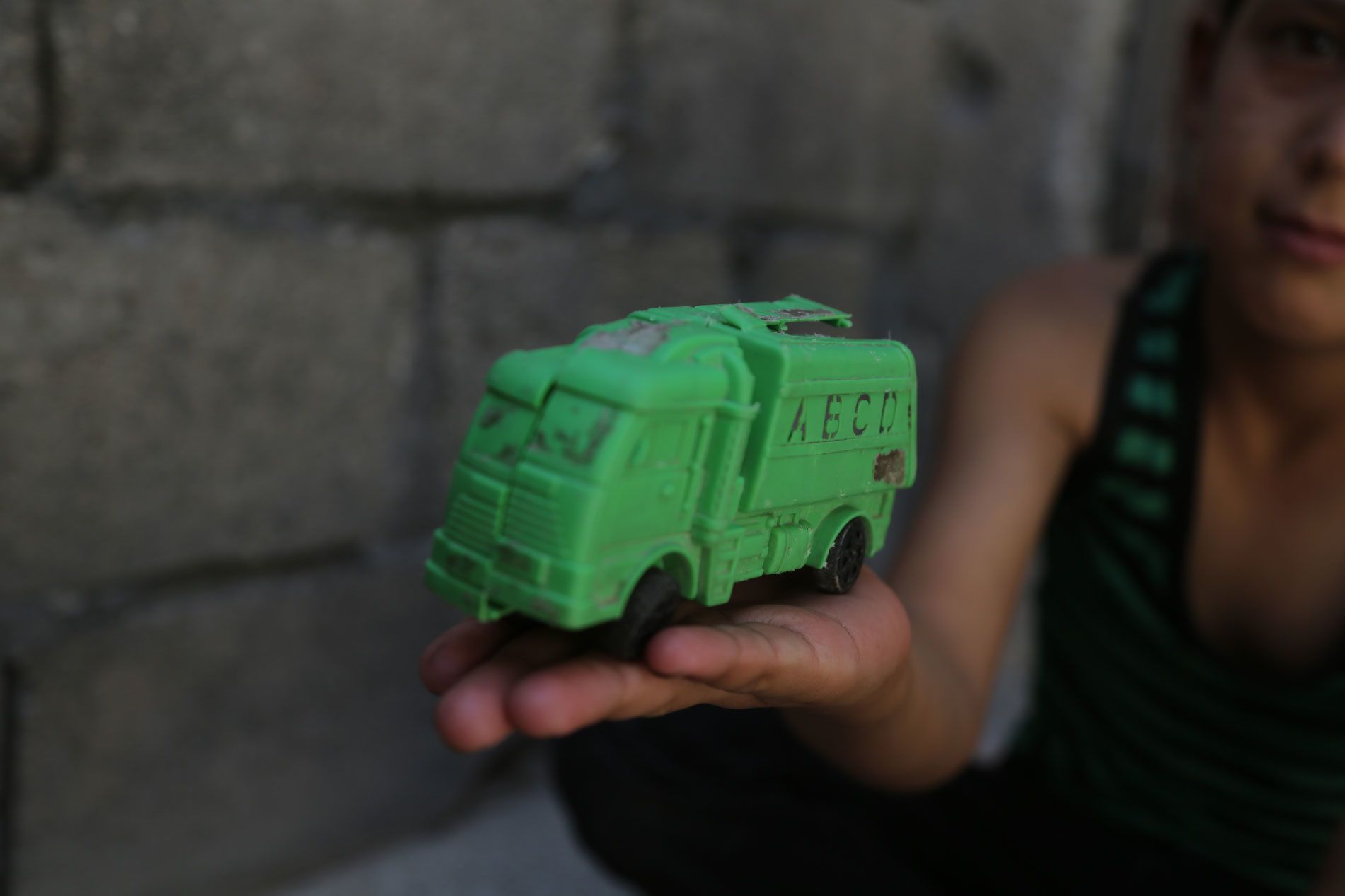
Holding two dolls under his arms, one on the right and the other on the left, Ahmed talks about his love for his younger sister's toys, which he plays with in turn. In refugee camps, everything can be shared; clothes, a blanket, and toys.
Placing his small blue, red and brown teddy bears besides a doll and a green toy car, the 9-year-old boy sadly recalls his lost bigger teddy bear.
Upon asking Ahmed about the toy he would like to own, he gave us a wide smile, flicking his eyeballs left and right. “I want a toy car, but my favorite is a bicycle,” he replied, “I want a bicycle, but I can't buy one.”
For Ahmed, his sister, cousin and friend, playing room and ways to enjoy their beautiful childish naughtiness are endless. At the end of the school day, they return to the camp that houses dozens of displaced families. They go to play with mud and stones, and may use some sticks of wood as boys and build one or two-story houses with rooms.
The moments of play, joy, and fun, and the innocent, pure laughter emitted from the tents of the displaced and around the camp, do not negate the harsh conditions and difficulties Syrian children have endured over the past ten years at the level of education, housing and standard of living.
Since of the outbreak of Syria’s ongoing war, about 6 million children have been born, of which there are about 2.6 million internally displaced children.
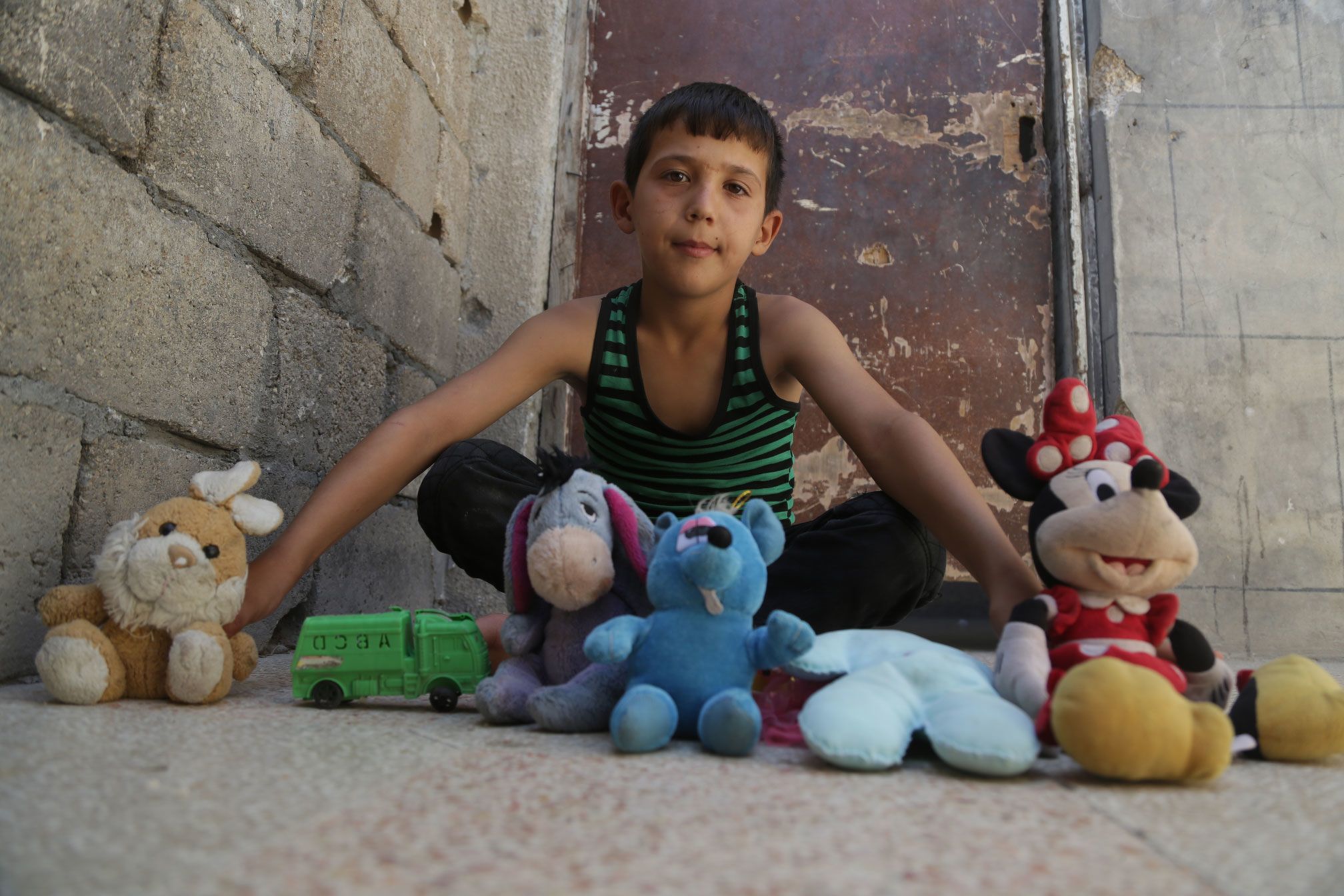
According to UNICEF, about 2.45 million children in Syria and an additional 750,000 Syrian children in neighboring countries do not go to school, 40 percent of whom are girls. Despite the enormous challenges they face and their suffering from malnutrition, stunting, psychological trauma, anxiety and stress, these children show great determination, perseverance and clinging to hope for a better life.

